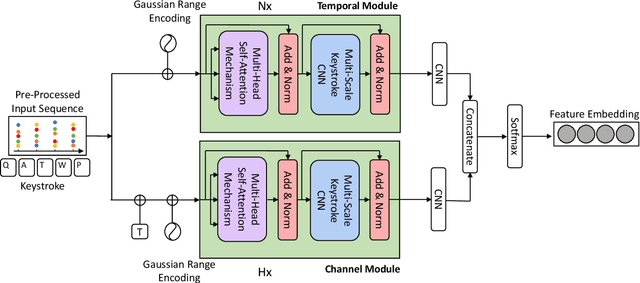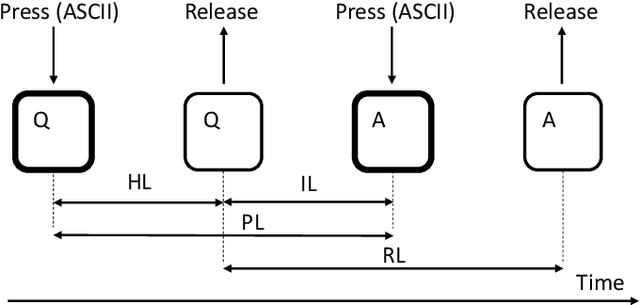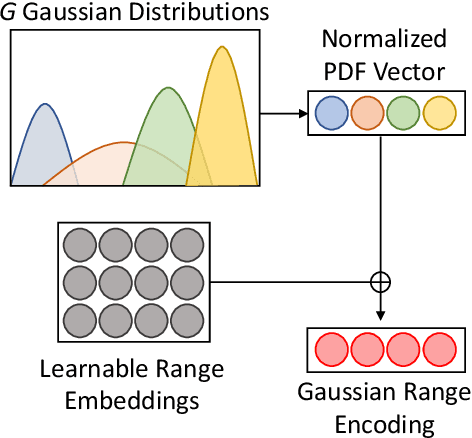Mobile Keystroke Biometrics Using Transformers
Paper and Code
Jul 15, 2022



Behavioural biometrics have proven to be effective against identity theft as well as be considered user-friendly authentication methods. One of the most popular traits in the literature is keystroke dynamics due to the large deployment of computers and mobile devices in our society. This paper focuses on improving keystroke biometric systems on the free-text scenario. This scenario is characterised as very challenging due to the uncontrolled text conditions, the influential of the user's emotional and physical state, and the in-use application. To overcome these drawbacks, methods based on deep learning such as Convolutional Neural Networks (CNNs) and Recurrent Neural Networks (RNNs) have been proposed in the literature, outperforming traditional machine learning methods. However, these architectures still have aspects that need to be reviewed and improved. To the best of our knowledge, this is the first study that proposes keystroke biometric systems based on Transformers. The proposed Transformer architecture has achieved Equal Error Rate (EER) values of 3.84% in the popular Aalto mobile keystroke database using only 5 enrolment sessions, outperforming in large margin other state-of-the-art approaches in the literature.
 Add to Chrome
Add to Chrome Add to Firefox
Add to Firefox Add to Edge
Add to Edge